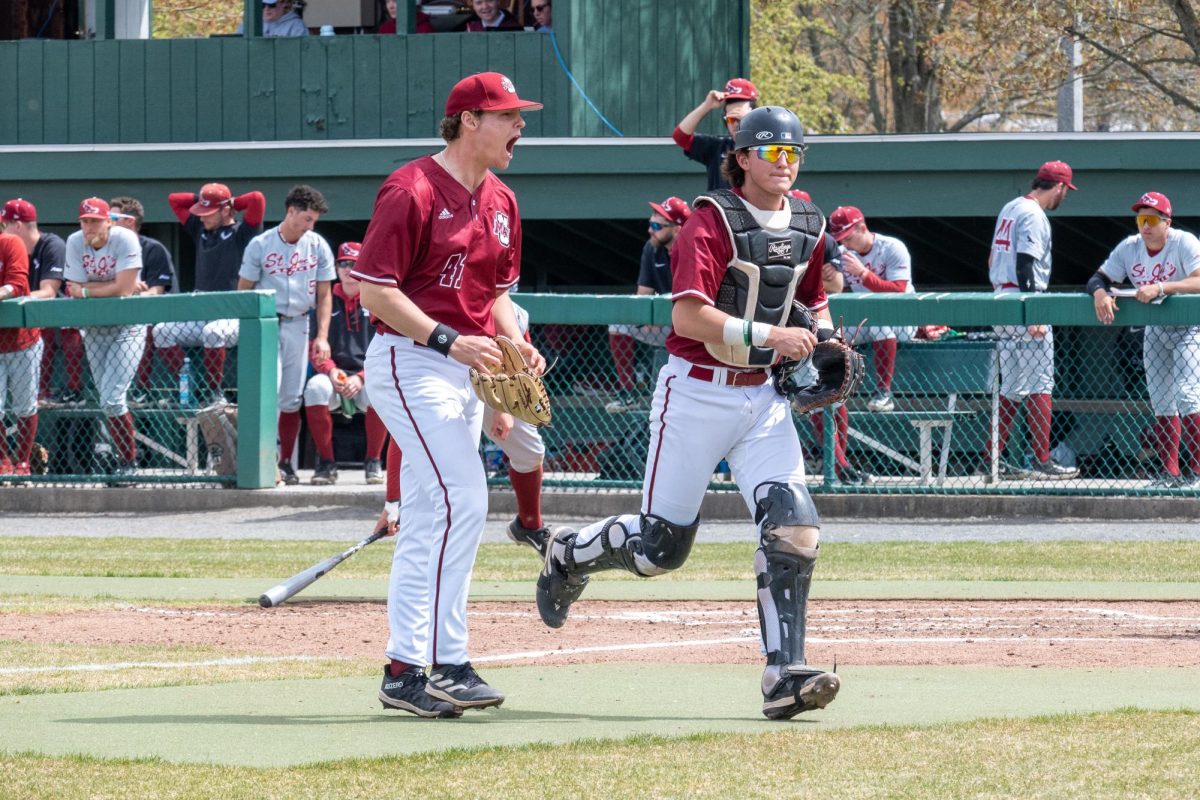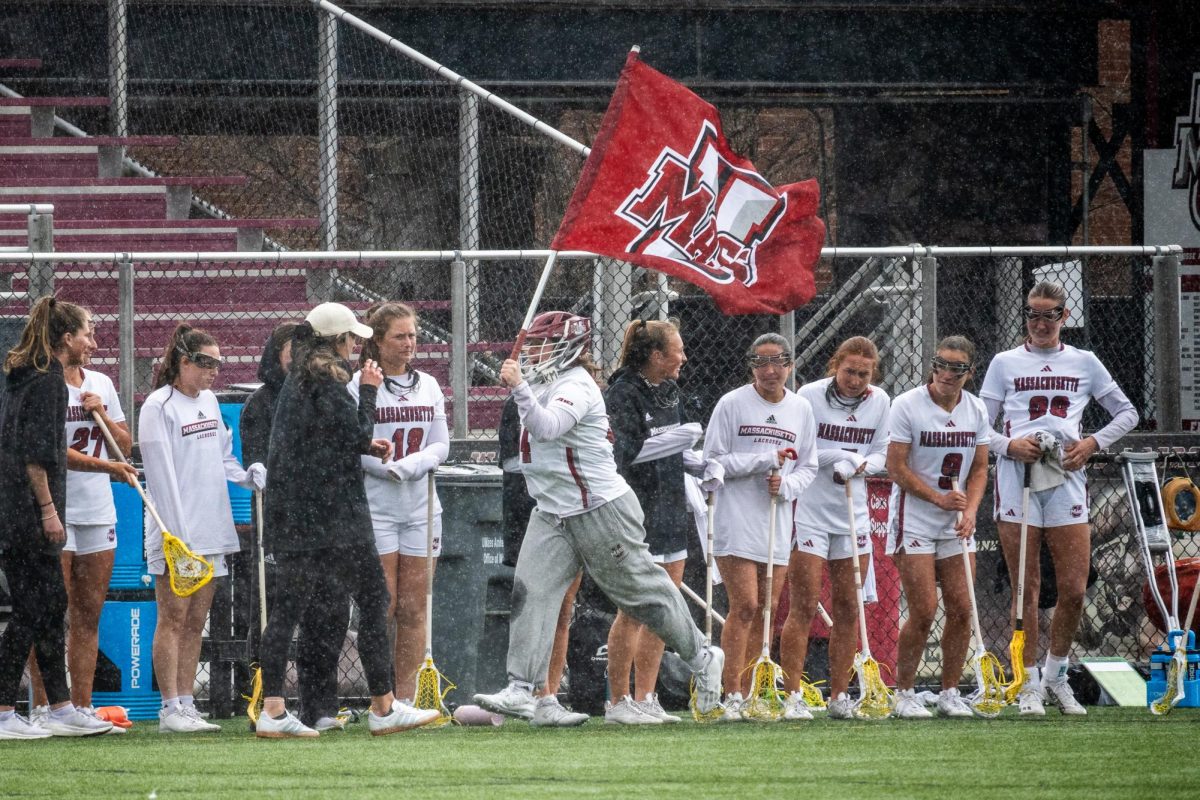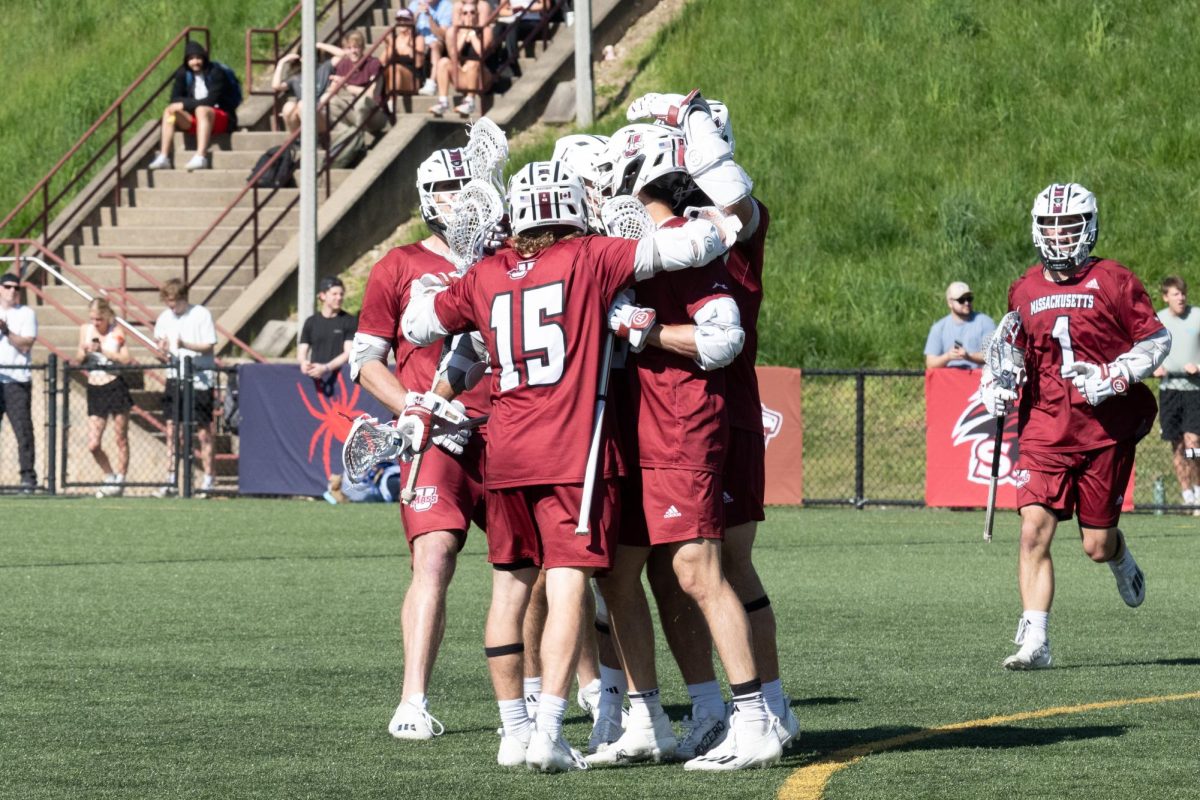Basing their decision on the results of a feasibility study conducted by Chicago-based Grenzenbach Glier and Associates, members of a special ad hoc athletics committee announced today that the Massachusetts football program should remain at the Division I-AA level, but continue to lay the groundwork for an eventual move to Division I-A.
“As with any major initiative requiring a significant capital investment, we need to make preparations and to be ready to strike when we see an opportunity that will bring us a high degree of success,” said James J. Karam, co-chairman of the University of Massachusetts Board of Trustees Ad Hoc Committee on Athletics.
“There is a strong and eager constituency for Division I-A football, but we should not take this step until we have all the ingredients needed to make the move an unqualified and enduring success,” committee co-chair Robert Meers added.
Meeting in Boston at the office of the UMass president, members of the athletics study committee reviewed the findings of the study that examined the feasibility of developing a privately funded Division I-A football program at the University’s flagship campus.
Citing significant uncertainty in two critical areas – the present economy and the lack of prospects for affiliation with a major conference – the authors of the study recommended that the University continue to further the development of its athletics and football programs and revisit the possibility of a jump to Division I-A in three to five years.
The study also notes, “The question of Division I-A football at UMass Amherst is generally regarded as a decades-long campus conversation.”
Over that period, UMass had fielded a highly successful I-AA football team which won the National Championship in 1998 and Atlantic 10 titles in 1999 as well as this past season.
“UMass is one of the premier I-AA football programs in the country,” Massachusetts head coach Mark Whipple said in an interview a week prior to the announcement of the committee’s decision. “No matter what division we’re in, all we’re aiming to do is win football games and graduate student-athletes.
“But there should be no question where this program wants to be, and where its fans and supporters should want it to be, and that’s [Division] I-A.”
The study also noted various factors that make a move to Division I-A desirable for a football program. Included among them were potential boosts in student and faculty recruitment that the move could support, along with the possibility of generating additional private financial funding among alumni and other various contributors.
Factors included in the report that indicate the need for a more deliberate approach when considering the move are the national and regional economic slump, which increases in difficulty the ability to generate funds necessary to make a Division I-A football program self-sufficient, as well as the recent shifting among the major Division I athletic conferences that makes it difficult to acquire appropriate conference affiliation.
Karam, a current member of the University’s Board of Trustees, declared that the study “is already paying significant dividends,” and adds that, “as a result of this undertaking, we have developed a roadmap for success. We have been able to make powerful new friends for UMass Amherst football, and we see that UMass football is generating new levels of excitement and energy.
“This augurs well for the future … under Chancellor John Lombardi’s leadership, an athletics program that already enjoys considerable success is going to reach new heights.”
Interim athletic director Thorr Bjorn agrees.
“The work of the committee and the findings of this report will only serve to better the University’s football program and athletic department as a whole.
“We’re excited about the success our football team has enjoyed and the excitement it has generated among supporters of the program, and we will continue to work at finding the best possible ways to accentuate what is a very positive aspect of the University as a whole.
“In an effort to position the Massachusetts football program and athletics department for furthered success, the ad hoc committee recommended the following actions.”
The Chancellor of the Amherst campus will develop a five-year plan for intercollegiate athletics that includes the continued development of the current football program at the Division I-AA level, without reducing or eliminating scholarships.
This plan will include the following elements:
– Development of 501c3 athletic association to encompass the entire intercollegiate athletic department’s revenue and expenses.
– Development of a fundraising plan capable of sustaining the intercollegiate athletic program at competitive levels for football and the other sports the university sponsors.
– Development of a capital plan to address facilities issues for football at the Division I-AA level and other sponsored sports at the Division I level.
– Development of a budget plan that ensures fiscal solvency of the intercollegiate athletic program within three to five years.
– Development of a promotional plan that will build the audiences for Minuteman intercollegiate sports in football, basketball (men’s and women’s), hockey and other programs as appropriate.
The chancellor will work with the athletic director to monitor the changing environment of the college football landscape to identify opportunities for alterations in the level of football competition. When such opportunities arise, another review of the support presently available for Division I-A football will be requested.
The chancellor will also report on the progress of such initiatives annually through the president to the Athletic Committee of the Board of Trustees.
Committee members theorized that UMass has the potential to improve operations, performance and the revenue-generating capacity of its athletic program, and that the institution needs to do so if it hopes to take advantage of such opportunities that may arise in the future.






